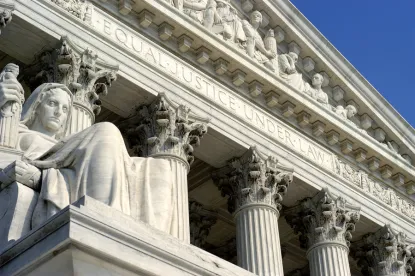In a 6-3 decision on Thursday, the United States Supreme Court vacated and remanded the opinion of the Ninth Circuit Court of Appeals and found that the Clean Water Act (“CWA”) regulated discharges from point sources “if the addition of the pollutants through groundwater is the functional equivalent of a direct discharge from the point source into navigable waters.” The Supreme Court distinguishes its opinion from the Ninth Circuit by determining that the “fairly traceable” test established by the lower courts was too broad to require a permit under the CWA.
The case concerned the city of Maui’s Lahaina Wastewater Reclamation Facility, which treats millions of gallons of sewage each day and injects the treated waste into wells deep underground. A study ordered by the United States Environmental Protection Agency demonstrated that the waste could be traced from the facility to the ocean. As a result of the study, environmentalists argued that a permit under the CWA was required.
Prior to the Supreme Court ruling, both the federal district court and the court of appeals sided with environmental groups, and established a standard to require a permit under the CWA when pollutants are “fairly traceable” from the pipe to navigable waters, despite the fact that the discharge initially entered groundwater before entering a navigable water.
The Supreme Court found that the “fairly traceable” standard was too broad, citing the “power of modern science” to detect pollutants years after their release in minute quantities. Justice Stephen Breyer, writing for the majority, stated that a permit is required only when the indirect pollution in navigable waters via groundwater is the “functional equivalent of a direct discharge.”
“If the pipe ends 50 miles from navigable waters and the pipe emits pollutants that travel with groundwater, mix with much other material, and end up in navigable waters only many years later, the permitting requirements likely do not apply,” he wrote.
In dissenting opinions, Justices Thomas, Gorsuch and Alito stated that the CWA mandated a permit only for direct discharges of pollutants into navigable waters and that the majority opinion was unworkable and incomprehensible.
“Instead of concocting our own rule, I would interpret the words of the statute, and in my view, the better of the two possible interpretations is that a permit is required when a pollutant is discharged directly from a point source to navigable waters,” Alito wrote.
The case is County of Maui v. Hawaii Wildlife Fund, No. 18-260.






 />i
/>i

